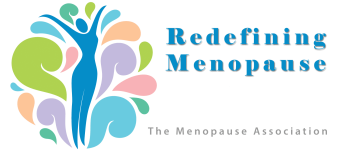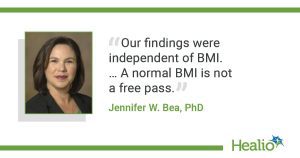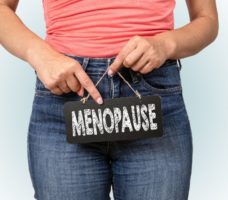Airway symptoms may develop in menopausal women with no prior history of asthma following the initiation of hormone replacement therapy (HRT), according to the results of a nested case-control study published in the journal CHEST.
Researchers sought to explore whether the use of HRT in menopause is associated with the new development of asthma using data from the Danish National Patient Registers between June 1, 1995, and December 31, 2018. An asthma diagnosis was defined as having had 2 redeemed prescriptions for inhaled corticosteroids within 2 years. HRT was defined as having had 2 redeemed prescriptions for exogenous female sex hormones within 6 months. All women between 40 and 65 years of age with a new diagnosis of asthma were included in the study. Women with chronic obstructive pulmonary disease were excluded from the analysis.
A total of 379,649 women were included in the study, of whom 34,533 were patients with asthma and 345,116 were control participants without asthma. The mean participant age at asthma diagnosis was 45.9±6.81 years. Comorbidities among the participants were assessed via the Charlson Comorbidity Index (CCI). In the overall total study population, 97.1% had a CCI of 0, 1.8% had a CCI of 1, and 1.0% had a CCI of 2 or higher.
Continue Reading
Women with asthma had significantly higher CCI scores and levels of education compared with those without asthma (P <.001 for both). Additionally, household income usually was significantly higher in women with asthma compared with those without asthma (P <.001).
During observation, a total of 95,360 participants received HRT. The most common form of initial HRT was estrogen as monotherapy, which was used by 57,070 of the women. The median length of HRT was 2.9 years. The prevalence of HRT use of any type was 34.4% in the asthma group, compared with 24.2% in the control group (P <.001).
Among women who were receiving active HRT, an adjusted hazard ratio (aHR) of 1.63 was reported (95% CI, 1.55-1.71; P <.001) of developing new asthma compared with those not receiving HRT. Further, women with asthma who discontinued HRT were likely to terminate their asthma treatment as well (aHR, 2.12; 95% CI, 1.96-2.37; P <.001). When the researchers stratified the analysis into subtypes of HRT, they found that both estrogen monotherapy and in combination with progesterone increased the HR of new asthma vs progesterone monotherapy, which decreased the HR of new asthma (P <.001).
One limitation of the study is that the investigators could not establish specifically the indication and prescribed doses for HRT. The researchers concluded that prospective studies exploring the effects of HRT in women who already have asthma, together with mechanistic studies, are warranted to determine the how to best guide women who are seeking treatment for their menopausal symptoms.
Disclosure: Several study authors declared affiliations with the pharmaceutical industry. Please see the original reference for a full list of authors’ disclosures.
Hansen ESH, Aasbjerg K, Moeller AL, Gade EJ, Torp-Pedersen C, Backer V. Hormone replacement therapy and development of new asthma. CHEST. Published online March 25, 2021. doi:10.1016/j.chest.2021.01.054
This article originally appeared on Pulmonology Advisor
This content was originally published here.








